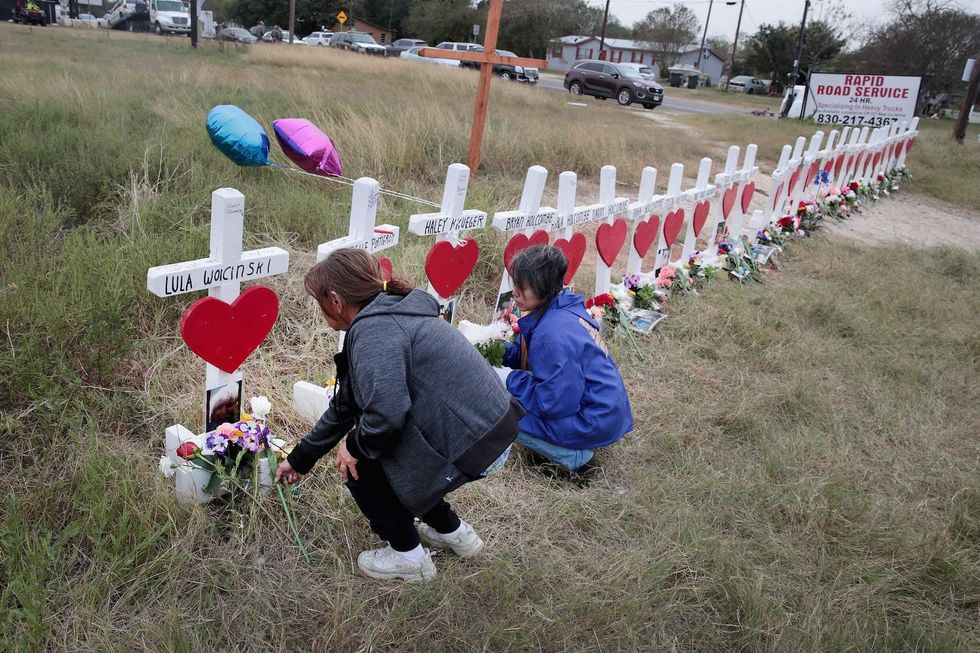
Some legal experts believe the U.S. Air Force could be legally liable for the injuries and deaths in the Sutherland Springs church shooting. (Scott Olson/Getty Images)

Some legal experts believe the U.S. Air Force could be legally liable for the 26 deaths from the Sutherland Spring, Texas, shooting, reports Vice News.
Possibly. Here’s what some lawyers think: The Air Force failed to report Devin Patrick Kelley's 2012 domestic violence convictions to the FBI.
As a result, he passed background checks and was allowed to purchase the gun he used in the mass shooting, when he should have been blocked from doing so.
The case against the Air Force is that their negligence led to the deaths of 26 people.
“This is a negligence claim along the order of suing a therapist for failure to report threats by a patient,” said Georgia State University law professor Timothy Lytton. “Here we have a case where the Air Force was in possession of information they have an obligation to report, and they failed to do that.”
That the shooting itself is an “intervening act” that breaks the chain of causation between the Air Force’s failure to report the convictions and the deaths and injuries.
“I would bet on the government in such a lawsuit,” said Eugene Fidell, a military justice expert at Yale Law School. “The intervening act is a criminal act would break any chain of causation.”
For an explanation of an intervening act or cause, here is a definition from the Legal Information Institute:
“An event that occurs after a party's improper or dangerous action and before the damage that could otherwise have been caused by the dangerous act, thereby breaking the chain of causation between the original act and the harm to the injured person. The result is that the person who started the chain of events may no longer be considered responsible for damages to the injured person since the original action is no longer the proximate cause.”
The “party’s improper or dangerous action” is the Air Force’s failure to report the convictions. The “damage that could otherwise have been caused by the dangerous act” is the loss of lives and the injuries in the shooting.
Fidell argues that the shooting is the intervening event that occurs in between and breaks the "chain of causation."